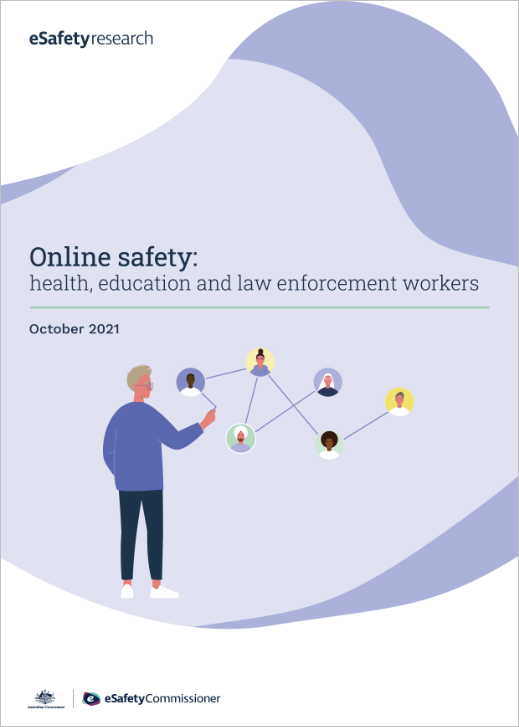Online safety issues encountered by health, education and law enforcement workers
They often work with people facing online safety issues and have a unique opportunity to help their patients, students or clients.
This research highlights the experiences of frontline workers and the systemic barriers they face to providing support. It shows the need for more resources and education about online safety issues.
Interviews were conducted with 18 health and welfare professionals, 30 people working in education and 16 law enforcement workers. The research was done in 2019.
The results have been used to develop eSafety’s Early Years program, professional learning modules and other resources.
Summary of key findings
Types of online issues
- The most common experiences that clients of workers encounter are cyberbullying, image-based abuse and technology-facilitated abuse.
- The types of issues depend on the profession. For example, educators see a broader range of safety issues in the course of their work compared to General Practitioners.
Response and support
- Frontline workers respond to online issues differently, based on the nature of their work.
- Early childhood and primary school educators are more likely to take an active role in dealing with student online issues. Secondary school educators generally make academic achievement their priority.
- Law enforcement officers working in general policing have tight timeframes and they focus on evidence gathering or the potential for prosecution.
The level of support provided can depend on:
- whether mandatory reporting applies
- the likelihood of conviction or police investigation
- the client's understanding of technology and how to protect themselves.
Barriers to engagement
Frontline workers can be restricted by:
- Limited personal experience and lack of confidence in their own knowledge about online safety. (The report also highlighted their struggle to keep up with technology).
- The challenge of assessing the cause of a client's behaviour and whether it's related to an online safety incident or not.
- Perceived role and competing job priorities. For example, many workers don't think that assisting their clients with online safety is a core part of their role.
Resource and support needs
Practical support is needed to educate workers and build engagement, including:
- resources and training tailored to different sectors
- a one page ‘cheat sheet’ including risks, signs of impacts, resources and referrals to manage incidents
- a guide on how to prevent issues and have a positive influence online
- information sheets that can be given to patients, students and clients.
Stay safe
This report includes descriptions of online safety issues that impact the clients, patients and students of frontline workers. It also includes some language that people may find distressing.
If you or someone you know is at risk of immediate harm, please call emergency services on Triple Zero (000).
For counselling and support, please contact:
1800RESPECT: 1800 737 732
Lifeline: 13 11 14
Beyond Blue: 1300 22 4636
